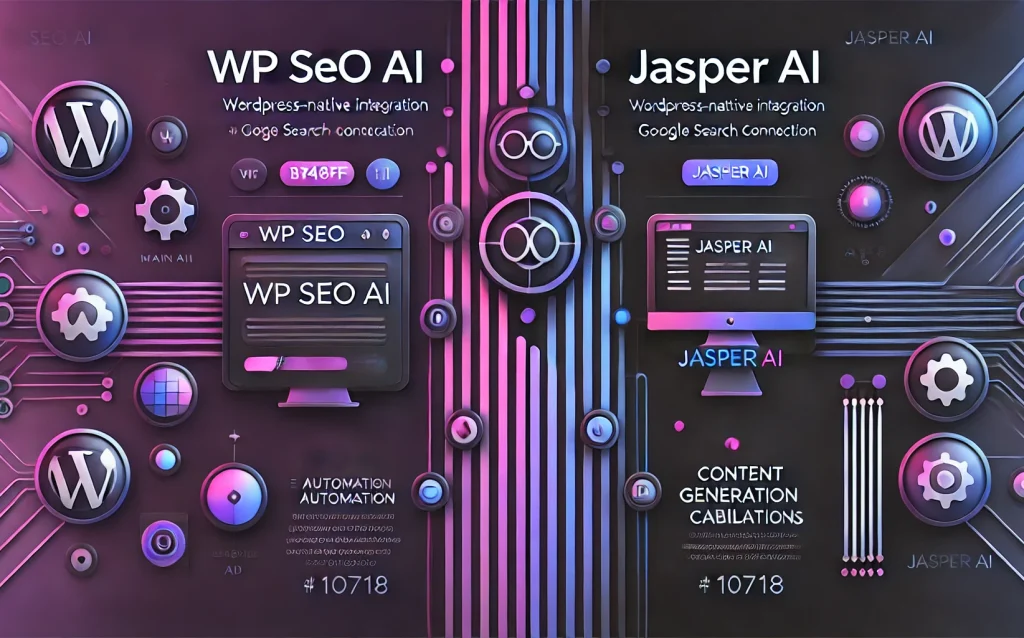Ever wondered why your SEO strategy isn’t quite hitting the mark? You might be missing a crucial piece of the puzzle: social media. Let’s dive into why social media is a game-changer for off-page SEO.
Understanding Off-Page SEO
Off-page SEO refers to all the activities you do outside your website to improve its search engine rankings. Unlike on-page SEO, which focuses on optimizing elements within your site, off-page SEO is about building your site’s reputation and authority. Think of it as your website’s social life—how it interacts with the wider web.
Key components of off-page SEO include link building, social media marketing, and influencer outreach. These activities help search engines understand that your site is trustworthy and relevant, which can significantly boost your rankings.
The Role of Social Media in SEO
Social media platforms are not just for sharing cat videos and memes. They play a pivotal role in your SEO strategy. When you share content on social media, you increase its visibility, which can lead to more backlinks, higher engagement, and improved search engine rankings.
Search engines like Google consider social signals—such as likes, shares, and comments—as indicators of content quality. The more your content is shared and engaged with on social media, the more likely it is to rank higher in search results.
Benefits of Social Media for Off-Page SEO
So, what are the tangible benefits of integrating social media into your off-page SEO strategy? Here are a few:
- Increased Visibility: Social media platforms have millions of active users. Sharing your content on these platforms can significantly increase its reach.
- Enhanced Engagement: Social media allows for direct interaction with your audience, fostering a sense of community and loyalty.
- More Backlinks: High-quality content shared on social media is more likely to be picked up by other websites, leading to valuable backlinks.
- Improved Brand Awareness: Consistent social media activity helps build your brand’s presence and authority.
How Social Media Enhances Link Building
Link building is a cornerstone of off-page SEO, and social media can be a powerful tool in this regard. When you share valuable content on social media, it increases the chances of other websites linking back to your content. These backlinks are crucial for improving your site’s authority and search engine rankings.
Moreover, social media platforms themselves can serve as high-authority backlinks. For instance, a well-optimized LinkedIn profile or a popular tweet can drive significant traffic to your website.
Boosting Brand Awareness Through Social Media
Brand awareness is another critical aspect of off-page SEO. The more people know about your brand, the more likely they are to search for it and engage with your content. Social media platforms offer an excellent opportunity to build and maintain brand awareness.
By consistently sharing valuable content and engaging with your audience, you can establish your brand as an authority in your niche. This not only drives traffic to your website but also improves your search engine rankings.
Social Signals and Their Impact on SEO
Social signals refer to the likes, shares, comments, and other interactions your content receives on social media platforms. These signals are increasingly being considered by search engines as indicators of content quality and relevance.
While social signals alone may not directly impact your search engine rankings, they can indirectly influence your SEO efforts. High engagement on social media can lead to more backlinks, increased brand awareness, and higher organic traffic—all of which contribute to better SEO performance.
Leveraging Social Media Platforms for Better SEO
Different social media platforms offer unique opportunities for enhancing your SEO strategy. Here’s how you can leverage some of the most popular platforms:
- Facebook: Share blog posts, engage with your audience, and participate in relevant groups to increase visibility and drive traffic.
- Twitter: Use hashtags, engage in conversations, and share timely content to boost your reach and attract backlinks.
- LinkedIn: Publish articles, join industry groups, and connect with influencers to build authority and drive traffic.
- Instagram: Use visually appealing content and stories to engage with your audience and build brand awareness.
Content Sharing on Social Media for SEO Success
Content is king, but distribution is queen. Sharing your content on social media is essential for maximizing its reach and impact. Here are some tips for effective content sharing:
- Know Your Audience: Tailor your content to the preferences and interests of your social media followers.
- Use Visuals: Images, videos, and infographics are more likely to be shared and engaged with than plain text.
- Engage Actively: Respond to comments, participate in discussions, and encourage user-generated content.
- Track Performance: Use analytics tools to monitor the performance of your social media posts and adjust your strategy accordingly.
Engaging with Audiences to Improve SEO
Engagement is a two-way street. The more you interact with your audience on social media, the more likely they are to engage with your content. This increased engagement can lead to higher social signals, more backlinks, and improved search engine rankings.
Consider hosting Q&A sessions, running polls, and sharing user-generated content to foster a sense of community and encourage interaction. The more engaged your audience is, the more likely they are to share your content and link back to your website.
Case Studies: Social Media’s Impact on SEO
Let’s look at some real-life examples to illustrate the impact of social media on SEO:
Case Study 1: A small e-commerce business saw a 30% increase in organic traffic after implementing a social media strategy that focused on sharing user-generated content and engaging with followers. This led to more backlinks and higher search engine rankings.
Case Study 2: A tech blog experienced a significant boost in search engine rankings after consistently sharing high-quality content on LinkedIn and participating in industry groups. The increased visibility and engagement resulted in more backlinks and improved SEO performance.
Common Mistakes to Avoid in Social Media SEO
While social media can be a powerful tool for off-page SEO, it’s essential to avoid common pitfalls. Here are some mistakes to watch out for:
- Ignoring Analytics: Failing to track the performance of your social media posts can lead to missed opportunities for optimization.
- Over-Promotion: Constantly promoting your products or services can turn off your audience. Focus on providing value and building relationships.
- Inconsistent Posting: Irregular posting can lead to decreased engagement and visibility. Maintain a consistent posting schedule to keep your audience engaged.
- Neglecting Engagement: Social media is about interaction. Failing to engage with your audience can result in missed opportunities for building relationships and driving traffic.
Measuring the Success of Social Media SEO Efforts
Measuring the success of your social media SEO efforts is crucial for continuous improvement. Here are some key metrics to track:
- Engagement Rate: Monitor likes, shares, comments, and other interactions to gauge the effectiveness of your content.
- Traffic: Use analytics tools to track the amount of traffic driven to your website from social media platforms.
- Backlinks: Keep an eye on the number and quality of backlinks generated from social media shares.
- Brand Mentions: Track mentions of your brand on social media to measure brand awareness and reputation.
Integration of Social Media Strategies with SEO
Integrating your social media strategies with your overall SEO efforts can lead to better results. Here are some tips for seamless integration:
- Align Goals: Ensure that your social media and SEO goals are aligned and support each other.
- Cross-Promote Content: Share your blog posts, articles, and other content on social media to increase visibility and drive traffic.
- Use Keywords: Incorporate relevant keywords in your social media posts to improve search engine visibility.
- Monitor Performance: Regularly track the performance of your social media and SEO efforts to identify areas for improvement.
Future Trends in Social Media and SEO
The digital marketing landscape is constantly evolving, and staying ahead of the curve is essential. Here are some future trends to watch out for:
- Video Content: Video content is becoming increasingly popular on social media and can significantly boost engagement and SEO performance.
- Voice Search: Optimizing your content for voice search can improve your search engine rankings and drive more traffic.
- AI and Automation: Leveraging AI and automation tools can streamline your social media and SEO efforts, saving time and improving efficiency.
- Personalization: Tailoring your content to the preferences and interests of your audience can enhance engagement and drive better results.
Conclusion: Maximizing Off-Page SEO Through Social Media
In conclusion, social media is a powerful tool for enhancing your off-page SEO efforts. By leveraging social media platforms, you can increase visibility, drive traffic, build backlinks, and improve your search engine rankings. Remember to engage with your audience, share valuable content, and track your performance to continuously optimize your strategy.




